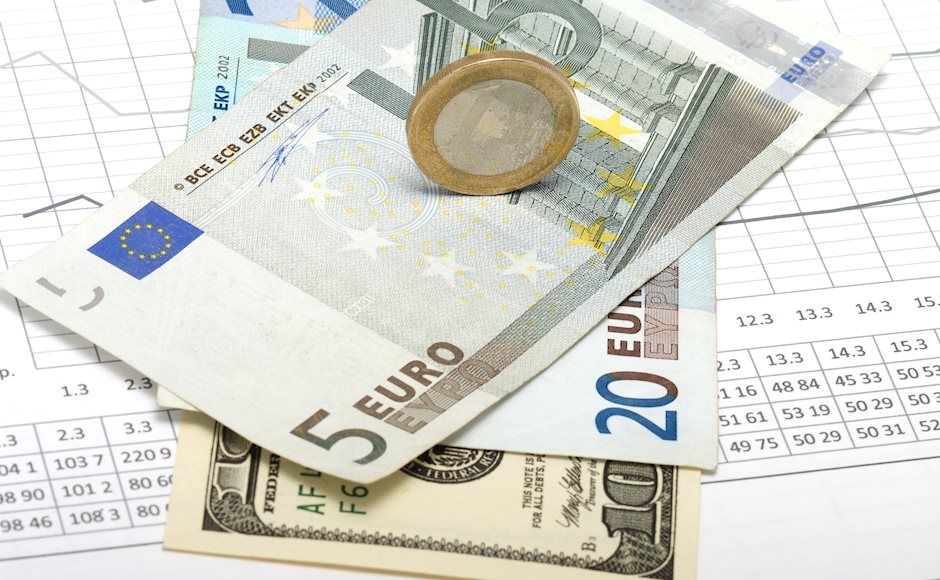EUR/USD trades with mild losses near 1.0400 amid holiday quiet session
- EUR/USD trades with a mild negative bias to around 1.0415 in Friday’s Asian session.
- The US Initial Jobless Claims declined to the lowest in a month last week.
- The dovish ECB bets might weigh on the Euro in the near term.

The EUR/USD pair drifts lower to around 1.0415 during the Asian trading on Friday. Trading volumes are thin as many traders are on holiday before New Year. Later on Friday, the preliminary reading of the US Goods Trade Balance for November will be released.
Data released on Thursday by the US Department of Labor revealed that the weekly Initial Jobless Claims dropped to the lowest in a month last week. The number of Americans filing new applications for jobless benefits declined to 219,000 in the week ending December 21, compared to 220,000 in the previous week. This reading came in below the market consensus of 224,000.
Meanwhile, the US Dollar Index (DXY) was last up 0.02% at 108.10, holding below a two-year high reached on Friday. The Federal Reserve (Fed) signaled a slower pace of interest rate cuts next year compared with the past few months, which might boost the Greenback.
Across the pond, the European Central Bank (ECB) Governing Council member Boris Vujcic said last week that the central bank will probably cut borrowing costs again if incoming data is in accordance with its projections. The ECB has cut rates four times this year, bringing the deposit rate to 3.0%. Analysts expect policymakers to continue such quarter-point moves until it hits 2.0% in June. This, in turn, might drag the shared currency lower against the US Dollar.
Euro FAQs
The Euro is the currency for the 19 European Union countries that belong to the Eurozone. It is the second most heavily traded currency in the world behind the US Dollar. In 2022, it accounted for 31% of all foreign exchange transactions, with an average daily turnover of over $2.2 trillion a day. EUR/USD is the most heavily traded currency pair in the world, accounting for an estimated 30% off all transactions, followed by EUR/JPY (4%), EUR/GBP (3%) and EUR/AUD (2%).
The European Central Bank (ECB) in Frankfurt, Germany, is the reserve bank for the Eurozone. The ECB sets interest rates and manages monetary policy. The ECB’s primary mandate is to maintain price stability, which means either controlling inflation or stimulating growth. Its primary tool is the raising or lowering of interest rates. Relatively high interest rates – or the expectation of higher rates – will usually benefit the Euro and vice versa. The ECB Governing Council makes monetary policy decisions at meetings held eight times a year. Decisions are made by heads of the Eurozone national banks and six permanent members, including the President of the ECB, Christine Lagarde.
Eurozone inflation data, measured by the Harmonized Index of Consumer Prices (HICP), is an important econometric for the Euro. If inflation rises more than expected, especially if above the ECB’s 2% target, it obliges the ECB to raise interest rates to bring it back under control. Relatively high interest rates compared to its counterparts will usually benefit the Euro, as it makes the region more attractive as a place for global investors to park their money.
Data releases gauge the health of the economy and can impact on the Euro. Indicators such as GDP, Manufacturing and Services PMIs, employment, and consumer sentiment surveys can all influence the direction of the single currency. A strong economy is good for the Euro. Not only does it attract more foreign investment but it may encourage the ECB to put up interest rates, which will directly strengthen the Euro. Otherwise, if economic data is weak, the Euro is likely to fall. Economic data for the four largest economies in the euro area (Germany, France, Italy and Spain) are especially significant, as they account for 75% of the Eurozone’s economy.
Another significant data release for the Euro is the Trade Balance. This indicator measures the difference between what a country earns from its exports and what it spends on imports over a given period. If a country produces highly sought after exports then its currency will gain in value purely from the extra demand created from foreign buyers seeking to purchase these goods. Therefore, a positive net Trade Balance strengthens a currency and vice versa for a negative balance.
Author

Lallalit Srijandorn
FXStreet
Lallalit Srijandorn is a Parisian at heart. She has lived in France since 2019 and now becomes a digital entrepreneur based in Paris and Bangkok.
















